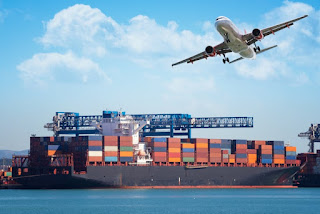Dynamic Pricing Models in Air Cargo Transportation
Dynamic pricing models are revolutionizing the way air cargo transportation businesses optimize revenue and improve customer satisfaction. Companies like Revenue Technology Services (RTS) are at the forefront of developing advanced pricing solutions that leverage real-time data and analytics to make smarter pricing decisions. By understanding and implementing dynamic pricing strategies, companies can adjust their cargo pricing to better meet market demand, maximize profitability, and maintain competitive edges.
What is Dynamic Pricing?
Dynamic pricing, also known as surge pricing or demand pricing, is a strategy where prices are adjusted in real-time based on current market demand, competitor prices, and other external factors. This model is commonly seen in various industries, including travel and hospitality, but it is increasingly relevant in the logistics and air cargo sector. Dynamic pricing allows businesses to respond to market fluctuations immediately, setting prices that reflect the current balance of supply and demand.
The Need for Dynamic Pricing in Air Cargo Transportation
The air cargo industry faces unique challenges, such as fluctuating demand, varying capacities, and volatile fuel prices. Traditional pricing models, which often rely on static rates, are not equipped to handle these rapid changes effectively. This can lead to lost revenue opportunities or uncompetitive pricing structures that deter potential customers. Dynamic pricing models provide a solution by allowing cargo carriers to adjust their pricing strategies in real time, ensuring they remain competitive and profitable.
How Revenue Technology Services Enhances Cargo Pricing
RTS offers sophisticated dynamic pricing solutions specifically tailored for the air cargo industry. Their systems integrate advanced algorithms, historical data analysis, and real-time market monitoring to help carriers develop optimal pricing strategies. These tools consider factors such as cargo type, shipment urgency, route popularity, seasonality, and operational costs to determine the most effective pricing at any given moment.
By utilizing such dynamic pricing models, carriers can not only enhance their cargo pricing strategies but also improve overall operational efficiency. For example, during periods of low demand, prices can be adjusted to attract more customers, whereas, during peak times, higher rates can be implemented to maximize revenue from limited cargo space. This flexibility is key in an industry where timing and capacity management are critical.
Benefits of Implementing Dynamic Pricing Models
Implementing dynamic pricing models offers numerous benefits to air cargo carriers. These include:
Increased Revenue: By aligning prices with current market conditions, carriers can maximize their revenue potential.
Enhanced Competitiveness: Dynamic pricing allows carriers to stay competitive by offering prices that are attractive yet profitable, based on real-time market insights.
Improved Customer Satisfaction: Customers benefit from pricing that is perceived as fair and reflective of current market conditions, which can enhance customer loyalty and trust.
Optimized Capacity Utilization: Dynamic pricing helps in managing cargo space more effectively, reducing instances of underutilization or overbooking.
Conclusion
In today's fast-paced and ever-changing market, dynamic pricing models are essential for air cargo carriers looking to stay ahead. Technologies provided by companies like Revenue Technology Services enable these businesses to implement sophisticated, real-time cargo pricing strategies that adapt to market dynamics and operational variables. As the industry continues to evolve, embracing these advanced pricing models will be key to achieving sustained growth and success in the competitive world of air cargo transportation.



.jpg)

Comments
Post a Comment